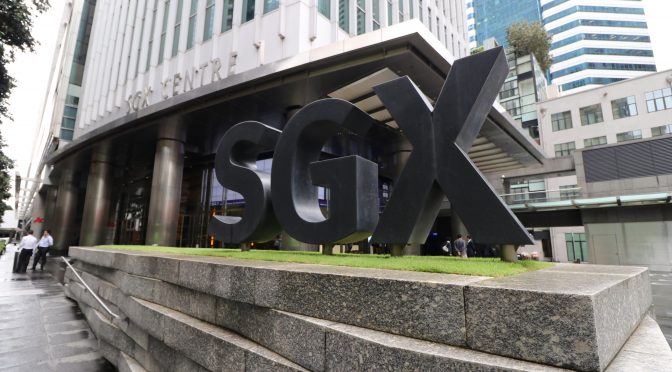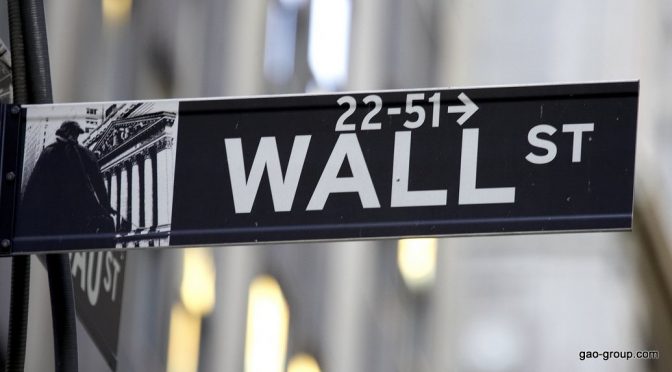To download a copy of this article in PDF. Please click here.
Who should be responsible for trading glitches?
In July 2017, London based electronic market maker B2C2 sued Singapore based bitcoin exchange operator Quoine over trades that were allegedly wrongly reversed.
B2C2, whose role as a market maker involves providing liquidity in cryptocurrencies, had placed seven orders for the sale of Ethereum (ETH) for Bitcoin (BTC) at an exchange rate of around 10BTC for 1 ETH on Quoine’s exchange. Those 7 orders were placed alongside 12,610 other orders from B2C2 which had been transacted at a price of around 0.04 BTC for 1 ETH.
The following day, Quoine unilaterally reversed the trade, stating that the trades were executed as the result of a system error. According to Quoine, at the time the trades were made, its ETH/BTC price quoter program had been affected by a technical glitch. Changes to encryption keys made on Quoine’s core systems were not implemented on the quoter, rendering it unable to access the ETH/BTC order book and set a correct market price.
Court documents noted that the orders would ordinarily not have been fulfilled as they were limit orders: exchange rates would not realistically have fluctuated wildly from 0.04BTC/1 ETH to 10BTC/ETH to let those trades go through. However, as a result of the trading glitch, the price quoter referenced the 7 orders placed by B2C2 as the market price and initiated stop loss orders on the leveraged positions of force-closed customers whose collateral had – as a result of the ‘new’ price – fallen below maintenance margins.
B2C2’s suit is for damages resulting from the reversal, which they claim was in breach of trust and denied them the ‘fruits of their advantageous transactions’.
The case is complex: the judge ruled that B2C2 has a prima facie case and that Quoine had demonstrated that it has two plausible routes for defence. B2C2’s application for summary judgement was dismissed and the case will proceed to the High Court. However, there are some key considerations which we feel will guide how the case will play out.
1. System Errors and Trading Glitches
While the trading of cryptocurrencies is relatively new, electronic trading systems are not. In 2005, a typing error caused one of Japan’s biggest brokerage firms, Mizuho Securities, to lose USD$225mil on a stock trade. A trader at Mizuho’s securities brokerage arm had tried to sell a share of J-Com Co. at ¥610,000 Yen (US$5,041) but had instead keyed in a trade of 610,000 shares for ¥1 each.
The sell order was for 42 times the J-Com’s outstanding shares, but the Tokyo Securities Exchange (TSE) processed it anyway, despite Mizuho’s attempts to cancel the order. Only later did TSE acknowledge that its system was at fault when Mizuho tried to cancel the order; its infrastructure had at the time been unable to keep up with increased trading volumes. According to an international trader quoted by the economist, “almost anywhere else in the world, an aberrant order would have been spotted and could have been de-keyed.”
As a result, Mizuho had to buy the shares it had effectively short-sold but did not own. It faced ¥40bn in losses as it was forced to settle in cash by the exchange’s clearing house, the Japan Securities Clearing Corporation, at a price of ¥912,000 per share. It subsequently filed a lawsuit against the TSE, and in 2009 was awarded damages of ¥10.7bn, with the Tokyo High Court stating that Mizuho ought to bear 30% of the responsibility for its losses.
Both the fat-fingered brokerage and the stock exchange whose system had failed to notice and reverse an impossible trade had to bear a share of the responsibility, with the presiding judge noting that “The TSE [was] responsible for failing to suspend overall stock trading promptly”. Could Quoine be held similarly accountable for its systems error? The case of B2C2 v Quoin, however, differs in how the point of contention is the exchange’s reversal of a trade which resulted from a systems error, and whether that was legal.
2. The Doctrine of Unilateral Mistake
Was Quoine within its rights to reverse the errant trade? Or was it responsible for the human mistake that resulted in the systems error?
B2C2’s case rests on the argument that the reversal constituted a breach of Quoine’s Terms and Conditions and thus was a breach of trust. According to the terms and conditions, “once an order is filled, [the user will be] notified via the Platform and such an action is irreversible”.
Quoine’s defense was twofold. First, it claimed it had the right to reverse the trades following incorporation of terms in a Risk Disclosure Statement. Its terms and conditions included a clause which provided it could change any terms, rights, obligations and privileges without notifying customers of such changes, while its Risk Disclosure Statement provided that “if [Quoine found] that a transaction took effect based on an aberrant value, [Quoine] may cancel the transaction”.
Second, Quoine argued that the trades were void because of a unilateral mistake at common law. Quoine’s lawyers put forth that regardless of how the high limit order price came to be offered, it “could not have represented a genuine offer to sell in a realistic market … [B2C2] must have known that the price was wholly out of line with all the other prices it had been seeking to trade at during that day”.
A large part of the future proceedings then, would pivot on the Doctrine of Unilateral Mistake. One landmark case was that of Chin Kin Keong et al v Digilandmall.com. In the case, the plaintiffs sought to sue the defendant for refusing to honour their orders of 1,606 laser printers, purchased at a price of $66 each and for a total price of $105,996, but with an actual market value of $6,189,524. The printers had been inadvertently listed at an incorrect price when an employee uploaded the contents of a training template onto Digiland’s commercial website.
The court ruled in Digiland’s favour; with the Doctrine of Unilateral mistake cited amongst the reasons for the judgement:
“… there are three possible types of mistake: common, mutual and unilateral. In common mistake, both parties make the same mistake. In mutual mistake, the parties misunderstand each other and are at crosspurposes. In unilateral mistake, only one of the parties is mistaken. The other knows, or must be taken to know, of his mistake. Where either mutual or unilateral mistake is pleaded, the very existence of agreement is denied. The argument is that, despite appearances, there is no real correspondence of offer and acceptance and that therefore the transaction must necessarily be void.
The claims of the plaintiffs were found to be “audacious, opportunistic and contrived”, in part because of their knowledge of the mispricing: “
If the price of a product is so absurdly low in relation to its known market value, it stands to reason that a reasonable man would harbour a real suspicion that the price may not be correct or that there may be some troubling underlying basis for such a pricing. He would make some basic enquiries to ascertain whether there is anything faulty with the product in an attempt to seek an explanation for or understanding of the basis for the price discrepancy … In such cases, where the purchaser has readily accessible means from the very same computer screen, to ascertain through a simple search whether a mistake has taken place, the onus could be upon him to exonerate himself of imputed knowledge of the mistake. Alternatively, knowledge may be readily inferred from what would be regarded as commonly known or notorious facts in the context of the transaction.”
Unilateral mistake to the terms of a contract, when one party is aware of it, results in the contract being void: either because the contract was never legally offered and accepted, or because there was no intention to create legal relations.
3. Machines trading with machines
If B2C2 was aware of the error when it made the trade then, its case against Quoine would be significantly weakened. A hitherto unaddressed question, however, is how B2C2 came to issue trades for Ethereum at 10BTC/ETH, 250x higher than its other trades at 0.04BTC/ETH. B2C2 claims the trades were placed automatically by its “proprietary system which seeks to quote prices which are at or near the best available prices on the Platform at a particular point in time”.
Here lies the complexity underlying this case: in Mizuho v Tokyo Stock Exchange, the errant order had been issued by a human broker. In B2C2 v Quoine however, it was a proprietary trading system which had placed the order. While the exact workings of this system are not yet clear, it raises questions regarding whether computer systems and software can have or constitute knowledge, and how their workings might relate to knowledge on behalf of their owners or programmers – up to this point largely undeveloped in contract law.
“It is crucial for the court to assess exactly how the 10 BTC/ETH rate was set, particularly how often the system attempts to make limit orders at these prices”, said Yi Yongjie, one of our experts at Gifted Group, and a former derivatives trader at JP Morgan with an M.A. in Financial Engineering from Cornell University.
For example, would the trades of systems built to arbitrage detect value dislocations as a result of software glitches or lags be considered void? What about systems programmed merely to exploit price dislocations as far as possible? Should programmers be held liable for the actions of the software they write, or the operators of such software, even if they leave it on autopilot? With the rise of high frequency trading, quantitative portfolio construction and artificial intelligence, the world we live in is one in which machines increasingly interact with their machine counterparts instead of humans and function without human input. We will have to wait till the case hits the courts before more details are revealed, but these are pertinent issues that will increasingly end up dominating the legal landscape.
4. Legal Clawbacks
In related news, cryptocurrency exchange OKEx recently had to engage in a socialized clawback after one of its clients took a large long position on 4,168,515 bitcoin futures, with a total value of US$400mn. When bitcoin’s value dropped, OKEx automatically liquidated the position after the user declined their request to lower the position. However, the question arises as to why OKEx’s risk management system had not flagged up the risky position or force-liquidated it earlier and had let the losses exceed the margin.
In this case, the losses resulting from the exchange’s system error was borne by other traders: OKEx’s social clawback mechanism was triggered, which allowed it to deflect the losses to traders with unrealized gains on their short positions, who are set to lose 18% of their profits.
Sources:
https://www.supremecourt.gov.sg/news/case-summaries/b2c2-ltd-v-quoine-pte-ltd
https://www.supremecourt.gov.sg/news/case-summaries/b2c2-ltd-v-quoine-pte-ltd
https://www.foxnews.com/story/typing-error-causes-225m-loss-at-tokyo-stock-exchange
https://www.economist.com/finance-and-economics/2005/12/14/please-may-i-take-it-back
https://www.japantimes.co.jp/news/2013/07/24/business/tse-11-billion-fine-to-mizuho-upheld/
https://asia.nikkei.com/Business/Mizuho-Securities-sees-105m-lawsuit-windfall
https://www.japantimes.co.jp/news/2006/10/18/business/mizuho-securities-to-sue-for-j-com-loss/
https://www.lawteacher.net/cases/chwee-kin-keong-v-digilandmall.php
https://www.coindesk.com/okex-confirms-9m-clawback-after-enormous-bitcoin-futures-position-fails







